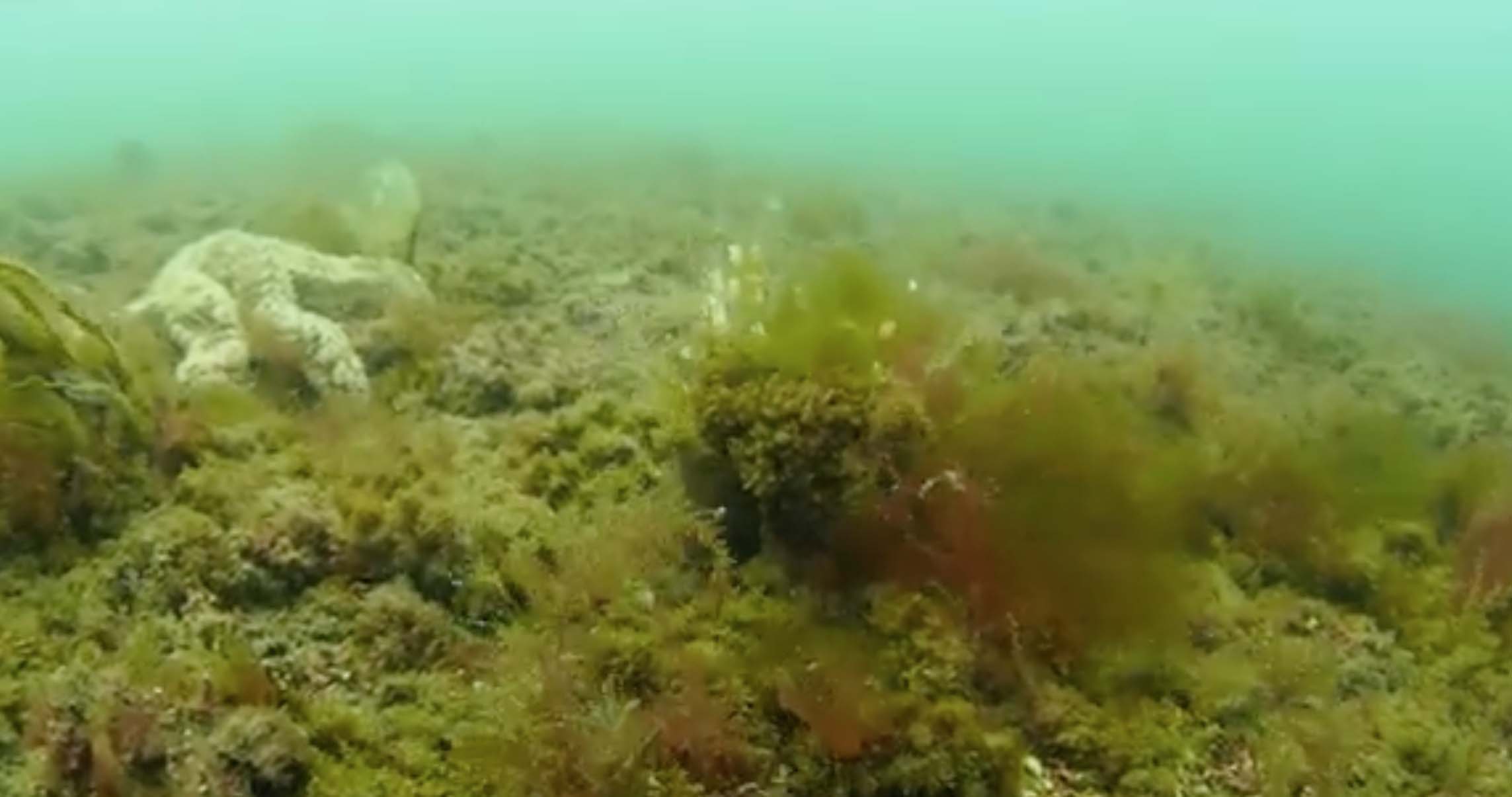Image: St Mawes by Philip Auld
Conservationists have expressed deep concern over the deteriorating state of ancient maerl beds off the coast of Cornwall, England. from recent dives near St Mawe, which were organised as part of the UK Maerl Forum 2025, revealed that these fragile ecosystems are now covered in dense algae – attributed to the impact of raised nutrient levels caused by sewage and agricultural run-off.
Maerl beds are composed of slow-growing, calcified red seaweed that serve as vital nurseries for various fish and shellfish species. Their sudden decline has alarmed experts who have monitored these habitats for years.
Video: Dense algae on maerl bed in the Fal estuary, Cornwall Wildlife Trust
Matt Slater, Marine Conservation Officer, who captured the footage, from the Cornish Wildlife Trust said:
“It was a shocking sight. The area, which was previously purple and beautiful, is now covered with a thick layer of brown, fluffy algae. We’ve surveyed here regularly for the past eight years and I have never seen the maerl beds looking like this. It’s a massive concern and shows, yet again, why it is urgent that we do all we can to improve water quality in the Fal estuary.”
Maerl beds are vulnerable to a number of threats, including fishing gear, anchoring and extraction. The Fal estuary is protected under several designations, that prevent the use of mobile fishing gear and extraction. However, the conference, an initiative by Cornwall Council and Natural England, highlighted water quality is also a key threat to maerl beds.
Dr Chris Laing of the University of Exeter explains that:
“Strong links have been identified between reduced water clarity and nutrient levels, and increased macroalgal growth that outcompetes photosynthesising species such as seagrass and maerl. This recent discovery is concerning and suggests urgent intervention in catchment water management is needed.”
Irreplaceable Habitats
Given the maerl’s extremely slow growth rate, Slater told the BBC that any loss is effectively permanent within our lifetimes. Recognising their ecological importance, Natural England recently classified maerl beds as irreplaceable marine habitats. The Cornwall Wildlife Trust is actively working with farmers to reduce agricultural runoff and with fishers to promote sustainable practices, aiming to safeguard these critical ecosystems for future generations.

